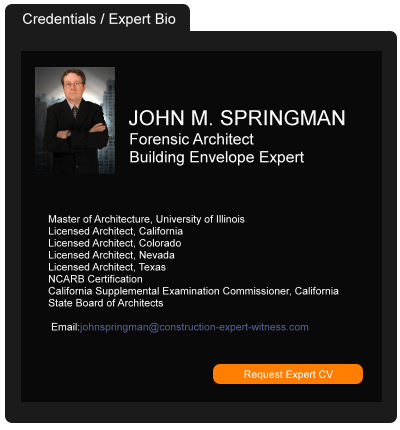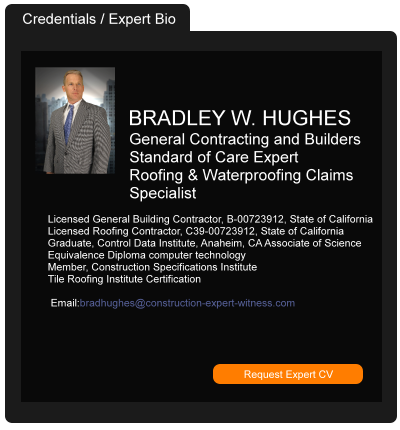Insurance Law Alert: California Supreme Court Limits Advertising Injury Coverage for Disparagement
June 18, 2014 —
Valerie A. Moore and Chris Kendrick - Haight Brown & Bonesteel LLPIn Hartford Casualty Ins. v. Swift Distribution (No. S207172, filed 6/12/14), the California Supreme Court affirmed a 2012 appeals court holding that there is no advertising injury coverage on a theory of trade disparagement if the competitor's advertisements do not expressly refer to the plaintiff's product and do not disparage the plaintiff's product or business. In doing so, the Supreme Court expressly disapproved Travelers Property Casualty Company of America v. Charlotte Russe Holding, Inc. (2012) 207 Cal.App.4th 969 ("Charlotte Russe"), which held that coverage could be triggered for "implied disparagement" by allegations that a retailer's heavy discounts on a manufacturer's premium apparel suggest to consumers that the manufacturer's products are of inferior quality.
In Hartford v. Swift the plaintiff, Dahl, held a patent for the "Multi-Cart," a collapsible cart that could be manipulated into different configurations. When Dahl's competitor Ultimate began marketing the "Ulti-Cart," Dahl sued alleging that Ultimate impermissibly manufactured, marketed, and sold the Ulti-Cart, which infringed patents and trademarks for Multi-Cart and diluted Dahl's trademark. Dahl alleged patent and trademark infringement, unfair competition, dilution of a famous mark, and misleading advertising arising from Ultimate's sale of Ulti-Carts. However, the advertisements for Ulti-Cart did not name the Multi-Cart, Dahl, or any other products beside the Ulti-Cart.
Reprinted courtesy of
Valerie A. Moore, Haight Brown & Bonesteel LLP and
Christopher Kendrick, Haight Brown & Bonesteel LLP
Ms. Moore may be contacted at vmoore@hbblaw.com; Mr. Kendrick may be contacted at ckendrick@hbblaw.com
Read the court decisionRead the full story...Reprinted courtesy of
Ignoring Employee ADA Accommodation Requests Can Be Costly – A Cautionary Tale
March 29, 2021 —
Peter Shapiro - Lewis BrisboisAs all employers should well know by now, the Americans with Disabilities Act (ADA) and many state and local counterparts may require employers to engage in an interactive process in response to a disabled employee’s request for a workplace accommodation. A recent ruling by the First Circuit Court of Appeals illustrates why employers have a very strong financial incentive to be proactive in adopting and rigorously enforcing their disability accommodation policies.
In Burnett v. Ocean Properties, decided on February 2, 2021, a wheelchair user employed by a hotel chain call center complained internally that the office’s entrance was not accessible to him. It had heavy doors beyond which was a downward slope that caused the plaintiff’s wheelchair to roll backwards as the door closed on him, requiring him to exert greater force as he struggled to enter. He asked that push-button automatic doors be installed. The employer did not take any meaningful steps to address the complaint with the plaintiff. Eventually he was injured as he tried to open the door. Still, the employer did not follow up on his accommodation request. The plaintiff eventually filed an administrative charge with the Maine Human Rights Commission. The employer met with the plaintiff at that time, but claimed lack of familiarity with ADA compliance requirements and took no action to address the complaint. The plaintiff eventually resigned and filed suit in federal court when the administrative process was completed.
Read the court decisionRead the full story...Reprinted courtesy of
Peter Shapiro, Lewis BrisboisMr. Shapiro may be contacted at
Peter.Shapiro@lewisbrisbois.com
New Becker & Poliakoff Attorney to Expand Morristown Construction Litigation Practice
September 10, 2014 —
Beverley BevenFlorez-CDJ STAFFAccording to New Jersey On-Line, Matthew Meyers has joined the Becker & Poliakoff firm at its Morristown office. Meyers “specializes in commercial litigation, with an emphasis on complex construction defects and real estate disputes.”
“This is an exciting move for me,” Meyers stated, as quoted by New Jersey On-Line. “I was attracted to Becker by the firm’s depth of construction litigation talent and the additional resources available for these claims. My new firm will not only enhance my practice but will elevate the level of services I provide to clients, which has always been my top priority.“
Read the court decisionRead the full story...Reprinted courtesy of
Editorial: Qatar Is Champion of Safety Hypocrisy in Migrant Worker Deaths
December 26, 2022 —
ENR Editorial Board - Engineering News-RecordOnce the World Cup soccer tournament concludes, decency dictates that someone should put a wrecking ball to Qatar’s Al Bayt and Lusail stadiums, where the opening ceremonies and matches were held. There’s no polite way to say it: bulldozing the World Cup sports facilities is the only way to amplify to the world the cost in migrant construction workers lives in all that was constructed.
Reprinted courtesy of
ENR Editorial Board, Engineering News-Record
ENR may be contacted at enr@enr.com
Read the full story... Read the court decisionRead the full story...Reprinted courtesy of
How Will Artificial Intelligence Impact Construction Litigation?
September 12, 2023 —
Patrick McKnight - The Dispute ResolverIn the first half of 2023, artificial intelligence (“AI”) caught the public’s imagination. Attorneys have not been immune from the fever-pitch of commentary regarding the possible applications. While early adopters have had varying degrees of success, commentators have proposed various potential impacts on construction projects and disputes. This article discusses potential areas where AI can assist in preventing and resolving disputes from the pre-bid stage through project completion and close-out.
What is AI?
Artificial intelligence entered the popular zeitgeist accompanied by both optimistic and pessimistic predictions about the future. Internet searches on AI exploded in December 2022, reflecting a rapid and widespread public interest in the topic. The term “AI” itself is often loosely used to refer to a machine or computer software with the ability to conduct machine learning.[1] Whereas “automation” is the simple process of computing inputs, artificial intelligence refers to the ability to learn without additional programming from a human being. Now, increased computing power is finally helping some of the potential applications of this technology come into focus. Nonetheless, artificial intelligence is still maturing and is subject to “hallucinations” where the technology essentially generates erroneous nonsense.
Read the court decisionRead the full story...Reprinted courtesy of
Patrick McKnight, Fox Rothschild LLPMr. McKnight may be contacted at
pmcknight@foxrothschild.com
HB 20-1046 - Private Retainage Reform - Postponed Indefinitely
May 04, 2020 —
David M. McLain – Colorado Construction LitigationOn Tuesday, February 18th, the Colorado House Business Affairs & Labor Committee voted 10-0 to postpone indefinitely House Bill 1046. If it had been enacted, HB 1046 would have required, for all for all construction contracts of at least $150,000:
- A property owner to make partial payments to the contractor of any amount due under the contract at the end of each calendar month or as soon as practicable after the end of the month;
- A property owner to pay the contractor at least 95% of the value of satisfactorily completed work;
- A property owner to pay the withheld percentage within 60 days after the contract is completed satisfactorily;
- A contractor to pay a subcontractor for work performed under a subcontract within 30 calendar days after receiving payment for the work, not including a withheld percentage not to exceed 5%;
- A subcontractor to pay any supplier, subcontractor, or laborer who provided goods, materials, labor, or equipment to the subcontractor within 30 calendar days after receiving payment under the subcontract; and
- A subcontractor to submit to the contractor a list of the suppliers, sub-subcontractors, and laborers who provided goods, materials, labor, or equipment to the subcontractor for the work.
Read the court decisionRead the full story...Reprinted courtesy of
David McLain, Higgins, Hopkins, McLain & RoswellMr. McLain may be contacted at
mclain@hhmrlaw.com
Court Upholds Plan to Eliminate Vehicles from Balboa Park Complex
June 10, 2015 —
Kristen Lee Price and Lawrence S. Zucker II – Haight Brown & Bonesteel LLPIn Save Our Heritage Organisation v. City of San Diego, et al. (No. D063992, filed 5/28/15), the California Court of Appeal for the Fourth Appellate District upheld a controversial plan to eliminate vehicles from various plazas in historic Balboa Park. In reaching its decision, the Court of Appeal considered a question of first impression involving the interpretation of San Diego Municipal Code section 126.0504.
Balboa Park, designated a National Historic Landmark in 1940, is a large urban park in the center of San Diego. The City of San Diego (“City”) recently approved a proposed plan (“Project”) to eliminate vehicles from the plazas within the Balboa Park complex and to return the plazas to purely pedestrian zones. Subsequently, a community group named Save Our Heritage Organisation (“SOHO”) filed a petition for a writ of mandate alleging, among other things, the City erroneously approved the Project. SOHO contended Municipal Code section 126.0504 mandated two key findings be made before the Project could be approved: (1) that the intended purpose of the property would not be adversely affected; and (2) without the proposed project, the property would not be put to a “reasonable beneficial use.” SOHO argued that although the City made the requisite findings, those findings lacked substantial evidentiary support. The trial court agreed with SOHO and directed the City to rescind the site development permit.
The City argued on appeal that Municipal Code section 126.0504 vested it with “discretion to make a qualitative determination of whether an existing use of the property, even if deemed beneficial, is also a reasonable use of that property under all of the facts and circumstances applicable to the particular property in question.” The Court of Appeal agreed and reversed.
Reprinted courtesy of
Kristen Lee Price, Haight Brown & Bonesteel LLP and
Lawrence S. Zucker II, Haight Brown & Bonesteel LLP
Ms. Price may be contacted at kprice@hbblaw.com; Mr. Zucker may be contacted at lzucker@hbblaw.com
Read the court decisionRead the full story...Reprinted courtesy of
No Trial Credit in NJ Appellate Decision for Non-Settling Successive Tortfeasors – Must Demonstrate Proof of Initial Tortfeasor Negligence and Proximate Cause
January 11, 2021 —
Kevin C. Cottone, Robert Wright, & Monica Doss - White and Williams LLPWhere an initial tortfeasor settles in a successive negligence case, the non-settling tortfeasors do not get a credit at trial, says the New Jersey Appellate Division. The court held in Glassman v. Friedel [1], that non-settling successive tortfeasors are not entitled to a pro tanto credit after the initial tortfeasor settles and its negligence is undetermined. Rather, successive tortfeasors have the burden at trial to demonstrate that (1) the initial tortfeasor was negligent, and (2) the initial tortfeasor’s negligence was the proximate cause of the second event.
In Glassman, the plaintiff, as executor of his deceased wife’s estate, sued a restaurant and property owner of the site where his wife fell and fractured her ankle. Afterwards, the plaintiff added defendants including the doctors and the medical center that cared for his wife after she fractured her ankle. The plaintiff alleged that they had been negligent during his wife’s surgery, which led to postoperative complications and injuries to his wife’s leg, ultimately resulting in a fatal pulmonary embolism.
Reprinted courtesy of
Kevin C. Cottone, White and Williams LLP,
Robert Wright, White and Williams LLP and
Monica Doss, White and Williams LLP
Mr. Cottone may be contacted at cottonek@whiteandwilliams.com
Mr. Wright may be contacted at wrightr@whiteandwilliams.com
Ms. Doss may be contacted at dossm@whiteandwilliams.com
Read the court decisionRead the full story...Reprinted courtesy of


































































